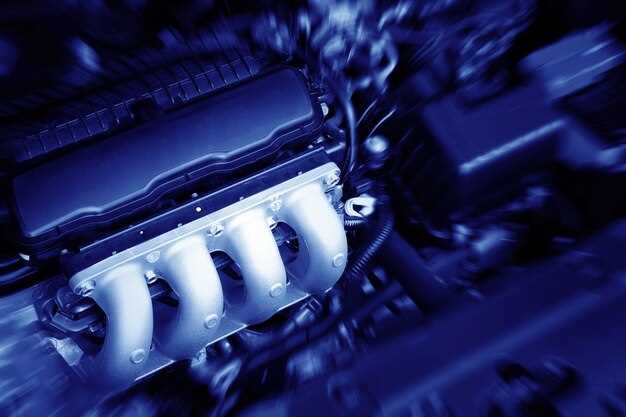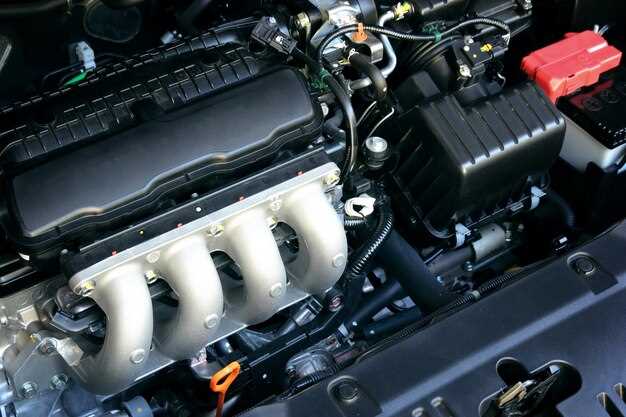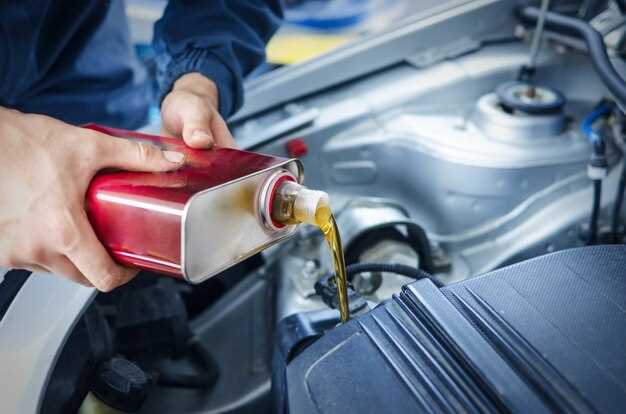
In the world of high-performance cars, maintaining optimal engine temperature is crucial for enhancing performance and longevity. The right coolant not only helps prevent overheating but also protects against corrosion and wear, which can arise from high-speed driving and aggressive acceleration. As automotive technology advances, the demand for specialized coolants designed to withstand extreme conditions has grown significantly.
High-performance vehicles are engineered to operate under demanding situations, which can cause standard coolants to break down quickly. This is where specialized coolants come into play, formulated with unique additives and properties that ensure maximum heat transfer and stability. Choosing the right coolant can make a substantial difference in your engine’s thermal management and ultimately its overall performance.
In this article, we will explore the best coolants available for high-performance cars, taking into consideration factors such as compatibility, boiling and freezing points, and additive benefits. Whether you’re a weekend racer or a daily driver pushing the limits, understanding the nuances of high-performance coolants can lead to better engine efficiency and a more exhilarating driving experience.
Choosing the Right Type of Coolant for Racing Engines
Selecting the appropriate coolant for racing engines is crucial for maintaining optimal performance and reliability under extreme conditions. Racing engines operate at higher temperatures and pressures than standard engines, making it essential to use a coolant that can endure these demanding environments.
The first consideration is the type of coolant. There are two primary categories: ethylene glycol-based coolants and propylene glycol-based coolants. Ethylene glycol is the most common choice in performance applications due to its excellent heat transfer properties and lower freezing point. However, it is toxic, so caution is necessary when handling it.
Another option is propylene glycol, which is less toxic and often considered for environments where spills could occur. While it has a higher boiling point, it typically provides inferior heat transfer compared to ethylene glycol, which can be a disadvantage in high-performance situations.
Race-specific coolants are another viable choice, as they often contain additives designed to enhance performance. These coolants can help prevent evaporation and cavitation, and some are formulated to reduce surface tension, improving the liquid’s ability to dissipate heat. Many racing coolants also come concentrated, allowing for flexibility in diluting with water.
It’s imperative to consider the water-to-coolant ratio. A common recommendation is a 50:50 mixture, which provides a balanced freezing and boiling point, but some racing applications may benefit from a higher coolant concentration for improved boiling resistance. Testing different ratios can help identify the optimal mix for specific tracks and weather conditions.
In addition to the type of coolant, the use of corrosion inhibitors is vital. Racing engines can be susceptible to corrosion and scaling due to the high temperature and various metals in use. Choose a coolant that provides adequate protection against rust and corrosion, especially if the engine has aluminum components.
Lastly, evaluate compatibility with other cooling system components. Ensure that the chosen coolant is compatible with hoses, seals, and radiators to prevent leaks and system failures. Regularly monitoring and replacing coolant also plays a pivotal role in maintaining engine health, especially in a racing context where performance can fluctuate rapidly.
Top Brands of Coolants and Their Unique Features

When it comes to high-performance cars, the coolant chosen is crucial for maintaining optimal engine temperatures under extreme conditions. Several brands have established themselves as leaders in the coolant industry, each offering unique formulations designed to meet the demands of high-performance vehicles.
1. Motul: Motul is renowned for its advanced synthetic coolants that provide excellent thermal stability and corrosion protection. Their coolants are specifically designed for racing applications, ensuring high boiling points and resistance to evaporation, making them ideal for extreme driving conditions.
2. Red Line: Red Line’s water-based coolants are characterized by their ability to enhance cooling efficiency and reduce engine temperatures significantly. Their products also contain anti-corrosive additives that protect engine components while providing superior heat transfer, which is vital for high-performance engines.
3. Evans Cooling Systems: Evans coolants are unique because they are waterless, which eliminates the risk of corrosion and reduces the freezing point significantly. Their proprietary formulation allows for higher boiling points, making them suitable for high-stress environments and extending engine life by preventing overheating.
4. Prestone: Prestone offers a well-balanced coolant that is compatible with most vehicle cooling systems. Their extended life coolant provides excellent protection against rust, corrosion, and scale formation, making it a reliable choice for both street and racing applications.
5. ACDelco: ACDelco, a trusted name in automotive parts, produces coolants that meet stringent specifications for high-performance vehicles. Their coolants feature a blend of ethylene glycol with organic acid technology, providing enhanced engine protection and longevity even under extreme conditions.
6. Zerex: Zerex coolants are designed specifically for performance applications, offering various formulations that cater to different automotive needs. Their racing coolants provide optimized flow and superior heat dissipation, essential for engines operating in high RPM ranges.
Choosing the right coolant is critical for maintaining engine performance and reliability. Each of these brands brings unique features tailored for high-performance engines, ensuring optimal temperature regulation and protection in demanding situations.
How to Maintain Optimal Cooling Performance in High-Performance Vehicles

Maintaining optimal cooling performance in high-performance vehicles is critical to ensure engine longevity and enhance overall performance. Here are several key practices to achieve this.
1. Regular Fluid Checks: Periodically inspect coolant levels and its condition. A proper mix of antifreeze and water is essential for effective heat transfer. Replace or top-off coolant as needed, following the manufacturer’s recommendations.
2. Use High-Quality Coolant: Select coolants specifically designed for high-performance engines. These formulations often include additives that prevent corrosion, facilitate heat transfer, and maintain performance under extreme conditions.
3. Monitor Temperature Gauges: Keep an eye on engine temperature gauges. Anomalies in temperature readings can indicate cooling system issues. Address any overheating concerns immediately to avoid potential damage.
4. Inspect the Radiator: Ensure the radiator is free from debris and that airflow is unobstructed. Regularly clean the exterior and check for leaks. A functioning radiator is essential for dissipating heat effectively.
5. Maintain the Water Pump: The water pump circulates coolant throughout the engine. Regularly inspect for leaks and listen for unusual noises. A malfunctioning pump can lead to inadequate cooling and overheating.
6. Service Cooling System Components: Regularly inspect hoses, clamps, and the thermostat for wear and tear. Replace damaged components to prevent coolant leaks and ensure optimal flow.
7. Upgrade Cooling Components: Consider upgrading to high-performance radiators, water pumps, or electric fans if you push your vehicle to its limits frequently. These components can enhance cooling efficiency significantly.
8. Implement Proper Driving Habits: Avoid excessive idling and aggressive driving, which can increase the engine temperature. Allow the vehicle to cool down after hard driving sessions to maintain coolant effectiveness.
9. Utilize Coolant Additives: Adding specialized coolant additives can improve thermal conductivity and inhibit rust formation. Ensure these additives are compatible with your coolant type before use.
By implementing these practices, you can ensure that your high-performance vehicle maintains optimal cooling performance, allowing it to deliver peak power and efficiency while minimizing the risk of overheating.


